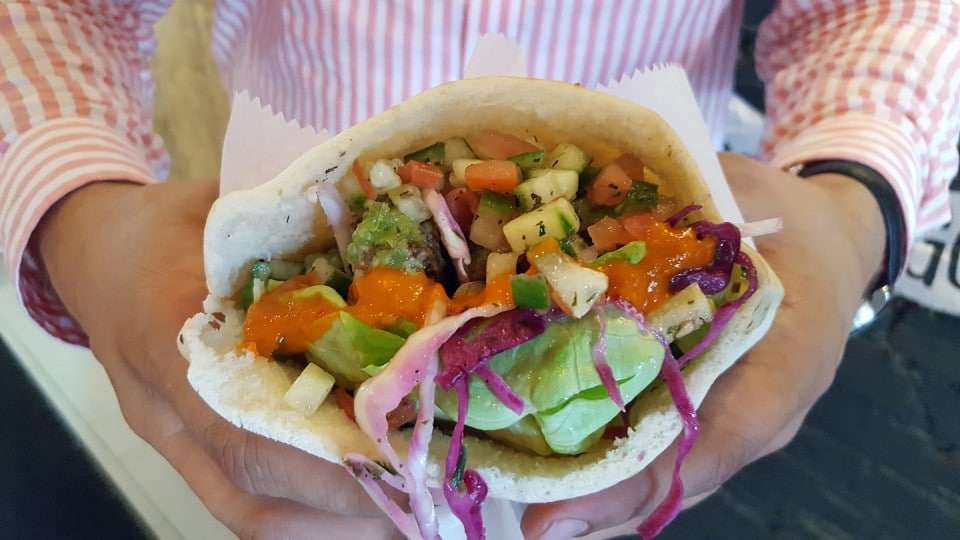More on the insulting sandwich, and the hypothesized fragility of the non-college-educated class

A commenter came to David Brooks's defense on the sandwich story, and while I disagree with the comment, I thought I'd discuss it in a bit of detail:
I just don't get why people keep reading past the point David was making. Look, I grew up poor, the child of a single mother. Nobody in my extended family had ever gone (let alone finished) college. We lived in a small, rural town that to this day still does not have a stoplight.
It's not about whether it's salami!!! She knew it was salami. She could see it was salami. And she could see that it was tomatoes. That's not the important part. It's the message that calling salami something else sends. Starbucks could call it small, medium, and large. But they use tall, grande, and venti. Why? Because of the message it sends. It says that it's fancier and nicer than just your everyday coffee shop.
As part of an Italian class in college, I had to buy prosciutto. I knew it was basically ham. But I had never been around ham that cost that much (for that matter, I had never been to a fancy deli counter either). So yeah, it was awkward and I felt completely out of place. And yes, I would have much rather gone to a normal grocery store (even if some products there also used foreign names for things).
Brooks's point is that those little things become social messaging that tells the poor that they are out of place. As communities become more economically homogeneous, those messages get louder and become more pronounced. That people can't get this shows me just how isolated and blind to this issue they are.
So here's my understanding of how many restaurants function: Food is one of those goods (unlike, say, toothpaste) in which many people appreciate variety. Because of this, many restaurants try to pitch their food as being interestingly different from others' food.
Some of the pitches are overstated (same thing under a different name, being used to justify a higher price). Some of the pitches are accurate - prosciutto tastes different from ordinary ham, and many people (like me) think it tastes better and actually does justify a higher price. (Indeed, even someone who isn't well-off can splurge and enjoy some prosciutto every so often.) And some pitches have a you're-our-kind-of-person quality: You're the sort of person who loves food; you're worldly and knowledgeable about food; you have our kind of attitude about animal rights or the environment or trade or spirituality or whatever else; or (though this usually doesn't involve claims of variety) you are a straightforward, no-nonsense person who appreciates simple, unaffected things.
But - and I think this is the key point here - adult Americans of all social classes have vast experience dealing with marketing pitches like this. (I say "social class" because I think that's what Brooks's column is about.) We're open to the possibility that there's some substance to the pitch (we've all come across some products that really are better than the alternatives), but we're also jaded enough to recognize that the pitch is often mostly puff.
It doesn't generally cause us to "freeze up" (Brooks's description) or make us feel insulted or awkward. (Perhaps a college student, such as the commenter I quote, might have less experience and less self-confidence, but older adults have been around the block enough not to feel similar awkwardness.) Even if we think there's a bit of "this is super-elite stuff" to the labeling, (1) we perceive that the sales pitch (especially at sandwich shops, rather than at high-fashion clothing boutiques) is "… and you are part of the super-elite" and (2) we laugh a little at what we see as marketing flim-flam.
Whether you have a high school diploma or a Ph.D., whether you are working class or professional, by the time you've lived a little in the United States, you generally learn to negotiate this stuff very well. If somehow you let yourself be overimpressed - or insulted - by marketing, that suggests that your friends should help you a bit (by reassuring you that it's just salami or by getting you to laugh at the restaurant just trying to make a buck by putting on airs) rather than save you by taking you to eat Mexican instead.
This also ties in to another comment thread at the post:
LaughsAtDopeyLibs: Liberals think that adding "brioche bun" or "ciabatta" to a sandwich description makes it worth double the price.
apedad: Actually those are capitalists looking for profit who label the food that way but keep on trying.
great Unknown: Those are the capitalists capitalizing on liberal ego. If there were no customers for fancy labels, there would be no profit in it.
As you might gather, I think politics is quite unrelated to the desire to eat interesting and unusual food - or to the desire to avoid paying extra for food pitched as interesting and unusual that really isn't.
But, more importantly, apedad is exactly right: The businesspeople (whatever their politics or the politics of their customers) are capitalists looking for profit - and Americans of all social classes and all political persuasions are deeply familiar with that, and generally quite able to see through the marketing pitches that flow from that.
